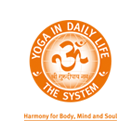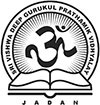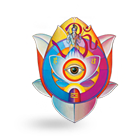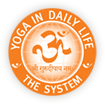Vishwaguru Mahamandaleshwar Paramhans Swami Maheshwarananda
Yoga in Daily Life and Self-Realization
being equanimous, imperturbable and by nature
Sat-Cit-Ananda – absolute Existence, Awareness and Bliss.
A am not the body which is non-existence itself.
This is called true Knowledge by the wise.
Sri Adi Shankaracharya, Aparokshanubhuti, v. 24
I offer my adoration and humble pranams to Shri Adi Shankaracharya, one of the greatest saints, philosophers, mystics and poets who ever lived on earth. He is the embodiment of wisdom and Gyana, the incarnation of the purity and divine power of Lord Shiva.. Born in Kalady, Kerala in the 8th century, in his short life span of 32 years he proved to be the most outstanding reformers of Hinduism. His knowledge of the Vedic texts and his dedication in unifying the spiritual beliefs of the nation has made him a legendary figure of India.
One of his invaluable contributions was the reordering and restructuring of the ancient Sannyasa order. The present structure of the Dasnami Sannyas Order is the result of his nation-wide spiritual reforms and influences. He encouraged the sannyasins to spread Advaita philosophy among people, and he himself wrote the most lucent, comprehensive and poetical presentations of Advaita Vedanta, like Viveka-cudamani, Atma Bodha, Vakya Vritti, Upadesa Sahasri and Aparakoshanubhuti. Since his time Sanatana Dharma, the belief of the oneness of all existence and acceptance of the different ways of worship became the dominating religious belief in India again.
We have to be thankful to Shri Adi Shankara that Sanatana Dharma, the eternal religion contained in the Vedas has been unifying Hinduism and preserving it as a spirited and all-encompassing religion till our present time.
The fundament of Sanatana Dharma is YOGA. Yoga means UNITY, that is the union of the individual with the universal consciousness, and to practise Yoga means to tread the path to reunification of the individual with its origin – God.
that is no object of mind or speech;
immeasurable, without beginning and end,
the absolute Eternal, of infinite glory, one's very Self.
Sri Adi Shankaracharya, Vivekacudamani, v. 240
Divine consciousness that is eternal, omniscient and omnipresent and resides in each and every particle of the universe, can be realized through the ancient, immortal science of Yoga. Yoga stands above all religious dogmas and fanaticism. Yoga itself is love and bliss, pure and divine. It is the principle of balance and harmony in the entire universe, the principle through which Creation took place – the first movement of the divine consciousness as nada, sound. That is the power of Yoga.
Yoga takes effect not only in the material world, but also in the astral worlds. It teaches us to master ourselves and our lives in every situation and every sphere. In fact, it is the perfect way to God. But Yoga is not a religion, not a cult, nor any theory or set of dogmas. Yoga is Reality. It is the ultimate truth. Yoga is older than our planet. It has been guiding the process of life since the very beginning of the universe.
Yoga is the power, which brings together and balances the five elements: earth, water, fire, air and ether or akasha. These five elements should be balanced in the human organism. When they are unbalanced, one feels much discomfort and becomes weak and ill. When we fall out of truth and oneness into duality, then we lose the balance and harmony of our existence. So balance means health and health means to maintain our original and perfectly balanced condition.
Like every raindrop proceeds towards the ocean from which it has emerged, so also everyone of us will sooner or later return to our origin, the Cosmic Self. Yoga is the way to make our aim clear, accelerate our development and progress toward it. Yoga provides us a very natural and practical approach to a healthy and successful life in harmony with the nature and the environment. It offers techniques for harmonizing the body and mind, purifying our consciousness, and achieve atma gyana, Self-Realization.
Yoga consists of four branches that correspond to seekers' various dispositions. Bhakti Yoga is the path of love and devotion for those who seek the Divine through worship and prayer as illustrated in Narada's Bhakti Sutras. Karma Yoga is the path of selfless action and service as summarized by Bhagwan Krishna in the Bhagavad Gita. Gyana Yoga is the path of knowledge and wisdom through philosophy and discrimination between Reality and unreality as described in Shankaracharya's Vivekacudamani. And Raja Yoga is the path of self-discipline and self-mastery through practice and meditation as exlpained in Patanjali's Yoga Sutras and in Shri Shankaracharya's Aparokshanubhuti.
The Atman that is absolute existence and knowledge
cannot be realized without constant practice.
So one seeking after knowledge
should frequently meditate upon Brahman
for the attainment of the desired goal.
Shri Adi Shankaracharya, Aparokshanubhuti, v. 101
Practising Yoga requires a great deal of self-discipline and confidence. Yoga makes one independent and free. Those who think that the life of a Yogi means withdrawal from the world, neglect or renounce all material goods misunderstand the very idea of Yoga. Yoga is a thoroughly practical way. It means to gain and preserve health in its whole meaning: physically, mentally, socially and spiritually. It also means to get and preserve independence and self-reliance in life, physically, mentally, emotionally as well as materially.
In order to attain genuine insight, the aspirant needs to practice. He should learn to control his body and his mind in order to gain Self-Realization. Self-Realization means the reunion of the individual Self, atma, and the cosmic Self, paramatma. In this way, we attain freedom and inner peace. Unless you practise, you will never realize what Yoga means.
To maintain that spiritual way of living and to get Self-Realization it is advisable for all of us to follow the way of Yoga. Yoga should not be lived separately from our daily lives. And this is the very idea of the System "Yoga in Daily Life": to live twenty-four hours a day according to the principles, rules and regulations that were handed down to us by the Vedas, the ancient Rishis and Shri Adi Shankarcharya. These universal and divine principles are: ahimsa (non-violence), tolerance and love for all living beings, to understand, forgive, love, serve, believe, worship, meditate and realize. Yoga in Daily Life will surely lead you to achieve the ultimate goal of Self-Realization. That is, to become one with God.
With the blessing of Gurudeva
Vishwaguru Mahamandaleshwar Paramhans Swami Maheshwarananda







